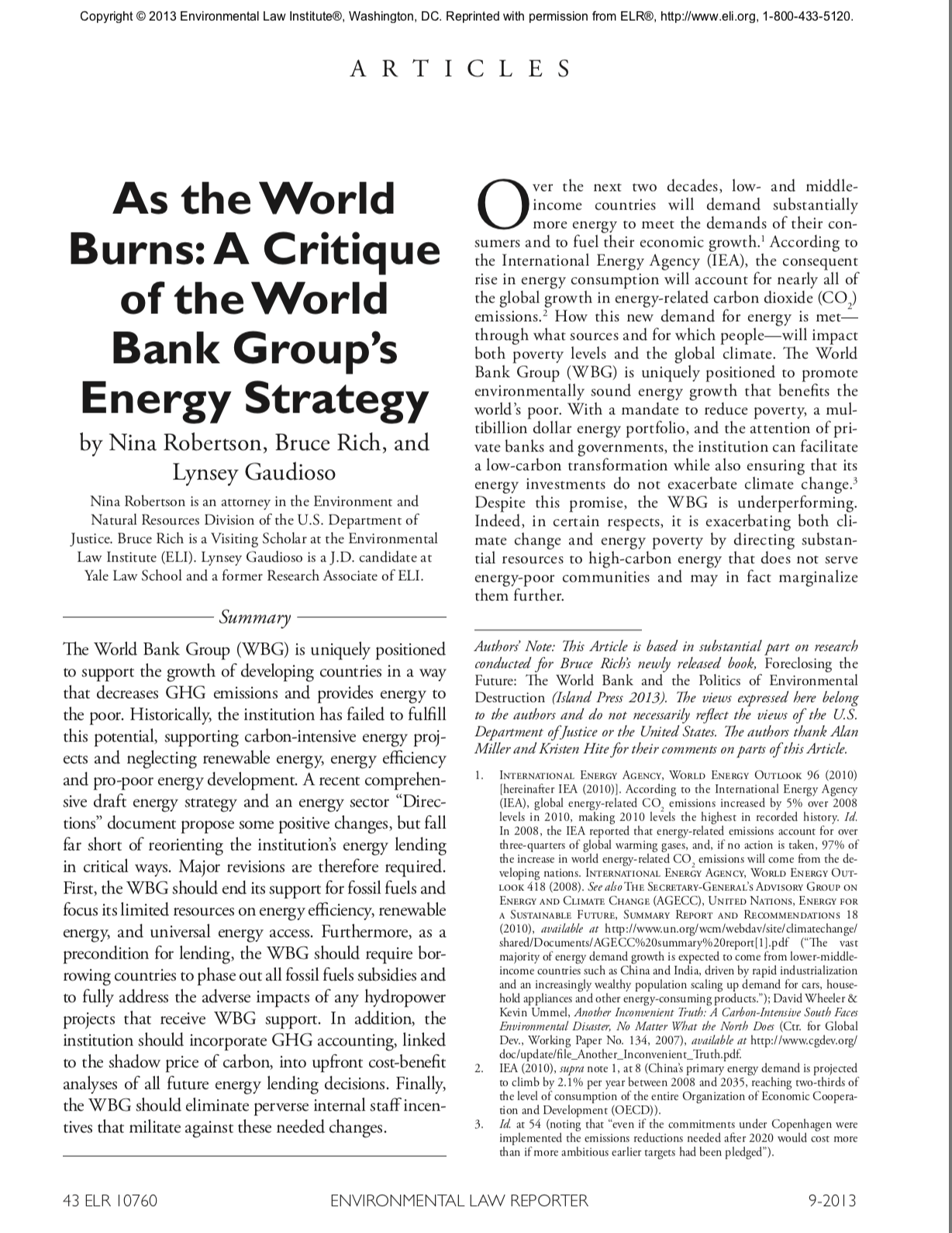- Nina Robertson, Bruce Rich, Lynsey Gaudioso
- Environmental Law Reporter
- September, 2013
- 43 ELR 10760-85
This article appeared in late 2013, and the World Bank Group has made progress in adopting some of the article's recommendations, namely commitments to end financing of coal power plants and an end to financing of fossil fuel development, including oil and gas. Nevertheless many of the problems identified in the article still persist, particularly the so-called "pressure to lend," i.e. pervervse internal incentives to push money out the door even in violation of the Bank's own internal environmental and social guidelines.,which unfortunately have also been diluted. The ariticle provides a good overview of world energy needs and clean energy development alternatives, as identified by the Paris-based International Energy Agency (IEA) for many years.
Recommendations: The WBG [World Bank Group] should end its support for fossil fuels and focus its limited resources on energy efficiency, renewable energy, and universal energy access. Furthermore, as a precondition for lending, the WBG should require borrowing countries to phase out all fossil fuels subsidies and to fully address the adverse impacts of any hydropower projects that receive WBG support. In addition, the institution should incorporate GHG [Greenhouse Gas] accounting, linked to the shadow price of carbon, into upfront cost-benefit analyses of all future energy lending decisions. Finally, the WBG should eliminate perverse internal staff incentives--the notorious "pressure to lend"-- that militate against these needed changes. As the IEA [International Energy Agency] emphasized over a decade ago, renewable energy and energy efficiency can help meet energy needs in developing countries while accounting for 89% of the GHG reductions needed by 2020 to stabilize CO2 at 450 ppm [parts per million]. Unfortunately, as of early 2019, these IEA recommendations have not been carried out either by major donor and developing nations, nor by international financial institutions, starting with the World Bank.



